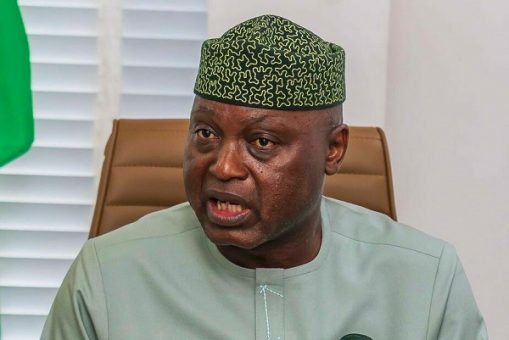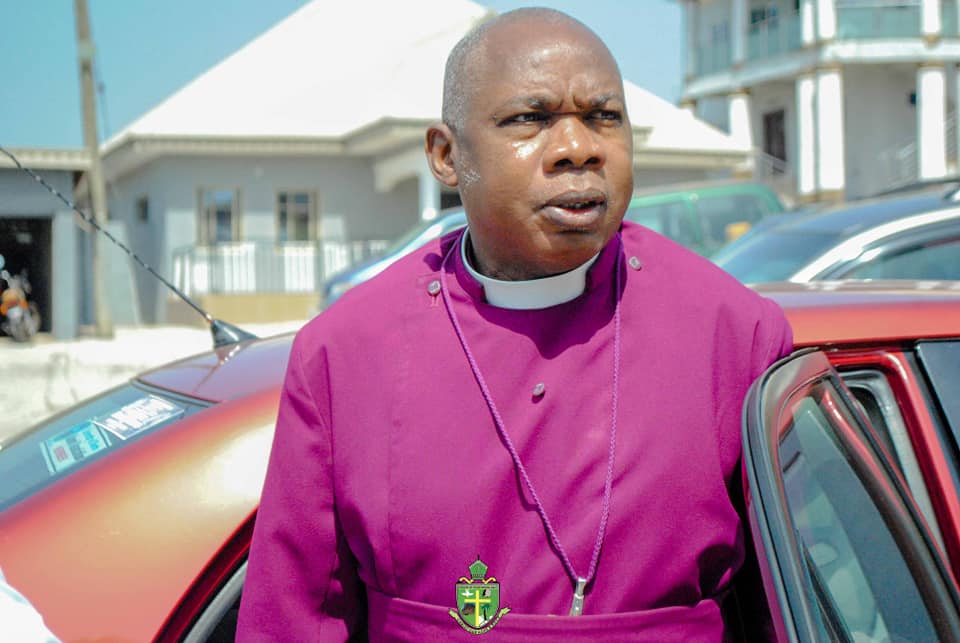With the emergence of former Vice President Atiku Abubakar as the presidential candidate of the Peoples Democratic Party, he has commenced search for a running mate with many party chieftains and political analysts clamouring that the South-east should be considered for the sake of equity and justice, Ejiofor Alike writes
With the successful conduct of the presidential primary of the Peoples Democratic Party (PDP) that produced former Vice President Atiku Abubakar as the party’s flagbearer for the 2023 presidential election, political horse-trading has begun among the southern politicians, especially from the South-south and South-east geopolitical zones over who will be his running mate.
Atiku was elected penultimate Saturday at a special convention of the PDP, after beating the Governor of Rivers State, Mr. Nyesom Wike; former Senate President, Dr. Bukola Saraki, among others to emerge the party’s standard bearer.
While some South-south governors seem to have positioned themselves for the position, new political considerations however, seem to favour the South-east zone for the simple reason that the zone has not had the opportunity of occupying the number one plum position since 1999.
Currently, there are three governors from the South-south that are potential candidates for the position of Atiku’s running mate. They are: Udom Emmanuel of Akwa Ibom State, Ifeanyi Okowa of Delta State and Godwin Obaseki of Edo State.
Okowa is a calm politician, and an Ika from Owa-Alero, who was re-elected as the governor of Delta State on May 29, 2019.
A medical doctor by training, he has been Secretary to the Ika Local Government and then Chairman of the Ika North-East Local Government Council and has consistently remained in the PDP since 1998.
Okowa was also a former commissioner in Delta State at different times. He was elected PDP’s Delta North Senator in 2011 and clinched the governorship position in 2015. By May 2023, Okowa would have completed his two constitutionally guaranteed terms.
On his part, Emmanuel took office since May 29, 2015. Before becoming governor, he was appointed in 2013 as Secretary to the State Government of Akwa Ibom and in 2015, he was elected governor of the state, succeeding his benefactor, Senator Godswill Akpabio.
He was re-elected in 2019, after defeating 44 other candidates at the poll. Emmanuel, who bagged a bachelor’s degree in accounting from the University of Lagos in 1988, was Executive Director in Zenith Bank Plc before working for the government.
Also being mentioned is Obaseki who is currently the Governor of Edo State. He was in the financial sector as an executive board member of several private companies, including Afrinvest before former Governor Adams Oshiomhole in March 2009 tapped him on the shoulder to join him to run Edo State. He served as the Chairman of the Edo State Economic and Strategy Team. He later succeeded Oshiomhole in 2016 and was re-elected for second term in 2020.
Whether for political expediency, balancing or giving a sense of belonging, Atiku and the leadership of PDP’s searchlight on the South-east geopolitical zone to shop for a running mate is not out of place. Indeed, many feel that it will be desirable to correct real or imaginary marginalisation of the zone.
It is just a convention and political arithmetic that the plum position of the President of Nigeria rotates between the North and the South. Chief Olusegun Obasanjo (South-west) had it from 1999 to 2007 for the South. He handed over President Umaru Musa Yar’Adua (North-west) in 2007 but by a twist of fate, Yar’Adua died midway and by the provision of the Nigerian constitution, the Vice President Goodluck Jonathan (South-south) assumed the mantle of leadership till 2015.
Due to the deep fracture in the hitherto behemoth, the PDP, the party lost the presidency to the All Progressives Congress (APC) in 2015 with President Muhammad Buhari (North-west) as president. Buhari will complete his eight-year tenure in 2023. Therefore, South-east is the only geo-political zone in the South that has not produced the president.
In the build-up to the primaries of the two major political parties, the clamour for a president of South-east extraction had resonated so well with many people and groups across the country. Chief Ayo Adebanjo of the Yoruba socio-political organisation, Afenifere, Chief Edwin Clark of the Pan-Niger Delta Forum (PANDEF) and Dr. Pogu Bitrus of Middle Belt Forum (MBF), had argued eloquently and persuasively that it was the turn of the South-east zone to produce Nigerian president in 2023.
The leaders of the socio-cultural groups argued that on the basis of equity, justice and fairness, the political parties in the country should pick their presidential candidates from the zone as a way of giving the people of the zone a sense of belonging.
The socio-cultural organisations reasoned that if the political class and the retired military Generals could concede the presidency to the South-west zone in 1999, the same approach could be adopted and micro-zone the presidency to the South-east zone in 2023.
Afenifere leader, Chief Adebanjo, was emphatic that the group was in support of the South-east producing the next president. In the same vein, the elder statesman and PANDEF leader, Chief Clark, said: “We stand for power shift to Southern Nigeria. Igbo people deserve the presidency of Nigeria.”
For Bitrus of the MBC, “It is the turn of the South-east to produce the president. Nigeria cannot be a stable and prosperous country if some of its constituent parts behave as if they were the natural masters of everyone and that everyone else exists at their pleasure and to serve them.”
Other groups and notable individuals have made similar appeals to the two major political parties in the country – the APC and the PDP – to zone the presidency to the South-east.
Many feel that since it is becoming obvious that the zone may not get the presidential, the vice presidential tickets should not elude them for equity and justice. This is why they are calling on Atiku and PDP to look in the direction of the South-east where the names of former President of the Senate and Secretary to the Government of the Federation (SGF), Anyim Pius Anyim, and short-lived Imo State Governor, Hon. Emeka Ihedioha and former Governor of Enugu State and current Senator representing Enugu East, Dr. Chimaroke Nnamani are being touted as potential favourite for the plum job.
Anyim and Ihedioha have cognate experiences in the legislature. They were both presiding officers in the National Assembly. While Anyim was Senate President 2000 to 2003, Ihedioha was Deputy Speaker, House of Representatives between 2011 and 2015. On the other hand, Nnamani was a two-term governor of Enugu State and third-term senator.
A respectable blend between the old and the new generations of politicians, Anyim attended Imo State University, where he studied law and graduated in 1987. And since joining politics in 1998, he has progressed enviably as one of the leading lights from the South-east geopolitical zone.
With a good grasp of the nation’s complexities and her fault lines, Anyim has proven to also know what the issues are with profound solutions often suggested on the way forward. Thus, as a force from the Igbo-speaking nation, he qualifies as a worthy complement to the PDP presidential ticket.
Ihedioha is a former Deputy Speaker of the House of Representatives from where he contested the governorship election and lost to Rochas Okorocha in 2015. When he tried again in 2019 and succeeded, it was snatched from him controversially by the Supreme Court on January 20, 2020 and given to Governor Hope Uzodimma.
Another name that has continued to come up prominently is that of Senator Chimaroke Nnamani. The former Enugu State governor has twin advantages over the rest of the potential candidates. Nnamani has both executive and legislative experiences. He was a forefront Governor of Enugu State for eight years and a ranking senator.
Many believe that if merit, competence and capacity are the yardstick, Atiku should settle for Nnamani and search no more.
They believe that Nnamani unarguably possesses the requisite knowledge, ability and statesmanship to be Nigeria’s Vice President. As a great mobiliser, he has demonstrated this through his Ebeano political family since 1999 that leadership is not complex if right steps are taken and putting the interest of the people first.
His Ebeano political family has become a dynasty in Enugu State and has continued to produce successive governors. It has also produced Senate President, Ken Nnamani, Senators, Deputy Senate President, in the person of Ike Ekweremadu, senators, ministers, House of Representatives members, ambassadors, INEC national commissioners, Director General of the Nigerian Maritime Administration and Safety Agency, state House of Assembly members, local government chairmen and councilors in Enugu State. His Ebeano network is synonymous with grassroots politics in Enugu State. Many analysts believe that such a man is an ideas man and an asset to the PDP going forward.
An American-trained specialist in obstetrician and gynecologist with sub speciality in foetal and maternal medicine (medicine of the unborn babies) of international repute, Nnamani is also a professor of medicine. He currently teaches and supervises medical students at Enugu State University of Science and Technology (ESUT) pro bono.
As governor of Enugu State, Nnamani demonstrated capacity and provided responsible leadership. It is to his credit that he built and moved the Enugu State University of Science and Technology (ESUT) to its permanent site, built the ESUT Teaching Hospital at the old site of Parklane Hospital, Enugu, three district hospitals in Udi, Enugu Ezike and Agbani, as well as 24 cottage hospitals. He also built the Enugu Campus of the Nigerian Law School.





